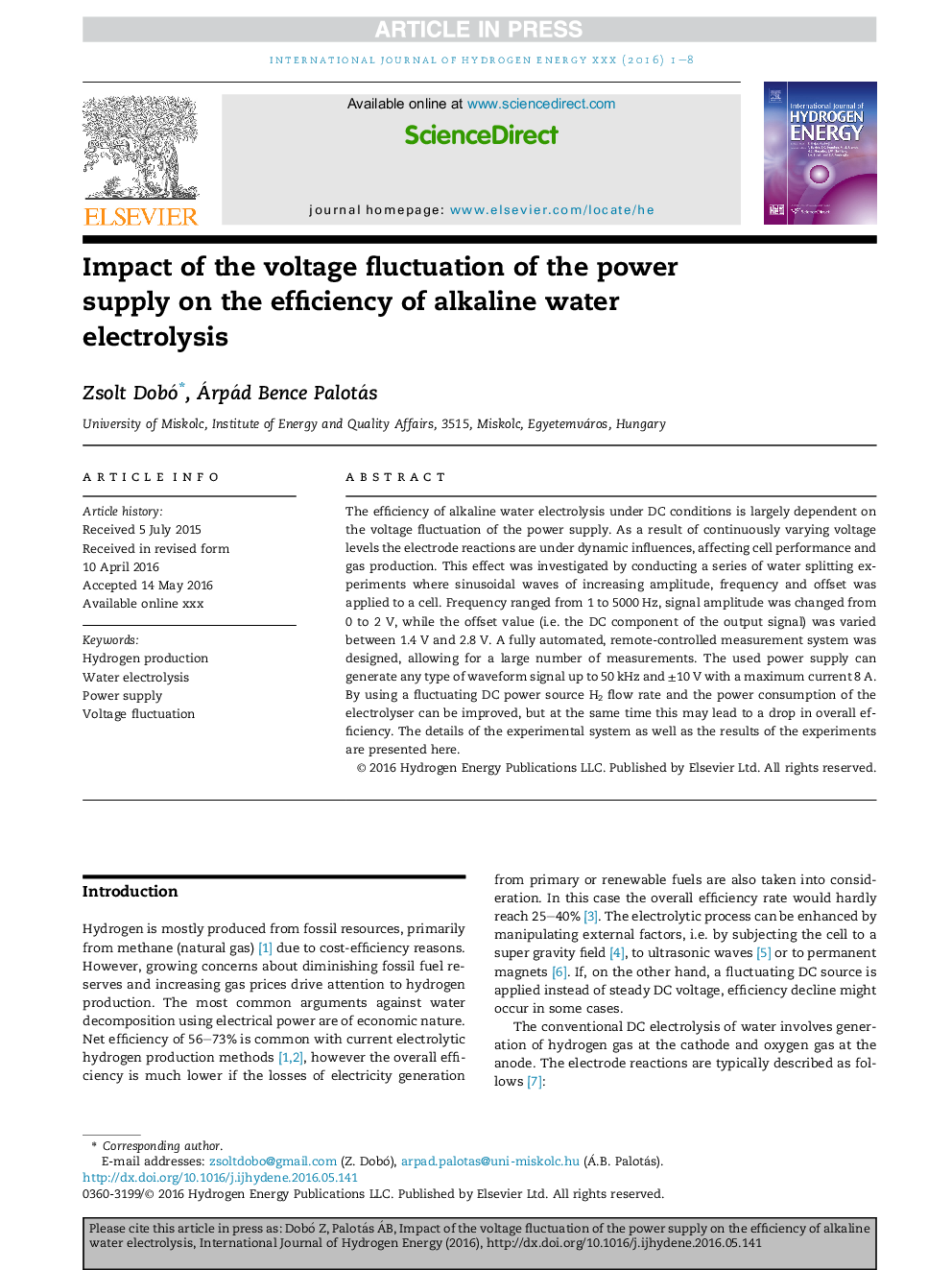| Article ID | Journal | Published Year | Pages | File Type |
|---|---|---|---|---|
| 7709935 | International Journal of Hydrogen Energy | 2016 | 8 Pages |
Abstract
The efficiency of alkaline water electrolysis under DC conditions is largely dependent on the voltage fluctuation of the power supply. As a result of continuously varying voltage levels the electrode reactions are under dynamic influences, affecting cell performance and gas production. This effect was investigated by conducting a series of water splitting experiments where sinusoidal waves of increasing amplitude, frequency and offset was applied to a cell. Frequency ranged from 1 to 5000 Hz, signal amplitude was changed from 0 to 2 V, while the offset value (i.e. the DC component of the output signal) was varied between 1.4 V and 2.8 V. A fully automated, remote-controlled measurement system was designed, allowing for a large number of measurements. The used power supply can generate any type of waveform signal up to 50 kHz and ±10 V with a maximum current 8 A. By using a fluctuating DC power source H2 flow rate and the power consumption of the electrolyser can be improved, but at the same time this may lead to a drop in overall efficiency. The details of the experimental system as well as the results of the experiments are presented here.
Related Topics
Physical Sciences and Engineering
Chemistry
Electrochemistry
Authors
Zsolt Dobó, Árpád Bence Palotás,
